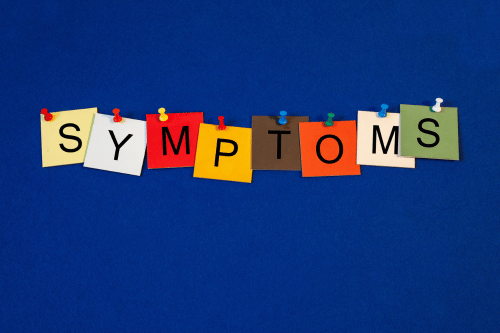How Does Alcohol Affect Healing

Learn how alcohol affects healing by slowing tissue repair, increasing pain, and disrupting hormones. Discover healthier ways to support recovery.
What Is Active Recovery Alcohol

Learn what is active recovery alcohol and how therapy, coping skills, and rehab at Sullivan Recovery help prevent relapse and support long-term sobriety.
How To Support Alcohol Recovery

Learn how to support alcohol recovery with expert tips on therapy, coping, and relapse prevention. Help your loved one achieve lasting sobriety today.
Detox Effects From Alcohol

Learn the key detox effects from alcohol, how long withdrawal lasts, and safe recovery tips from experts at Sullivan Recovery in Mission Viejo, California.
Detox Symptoms Of Alcohol

Learn the most common detox symptoms of alcohol, from anxiety to seizures. Discover safe treatment options and medical detox support at Sullivan Recovery.
How Do I Detox My Body From Alcohol

Table of Contents Seeking Drug Or Alcohol Detox? Sullivan Recovery is a leading drug and alcohol detox in Mission Viejo, California. Call Today! Clinically Reviewed By: Rachel Sweet | LMFT How Do I Detox My Body From Alcohol? When people ask, “how do I detox my body from alcohol?”, the answer depends on several factors, including drinking habits, health conditions, and support systems. Alcohol detoxification is the process of clearing alcohol from the body while stabilizing the patient physically and mentally. For many, this requires medical detox or a medically supervised detox program to ensure safety during withdrawal. Why Alcohol Detoxification Matters Alcohol affects nearly every organ, from the liver to the brain, leading to serious disease if use continues. Heavy drinking strains digestion, raises blood pressure, and damages the stomach lining, which can weaken the patient’s overall health. Over time, addiction disrupts mental health and increases the risk of hepatitis, inflammation, and delirium tremens. Alcohol detoxification allows the body to reset by removing toxins, supporting recovery, and reducing long-term harm. Medically supervised detox ensures patients avoid dangerous withdrawal complications such as seizure, high heart rate, and dehydration. Therapy, diet changes, and abstinence after detox also strengthen the body, improve sleep, and restore energy. How Do You Detox Your Body From Alcohol Safely? If you wonder, “how do you detox your body from alcohol?”, it is important to remember that quitting cold turkey without support is risky. A medically supervised detox helps regulate blood pressure, sleep patterns, and enzyme function during the withdrawal phase. Doctors may prescribe medication to stabilize the patient and reduce symptoms like anxiety, nausea, and insomnia. Alcohol detox should not be rushed. The body requires time for the liver and blood to process alcohol out of the system, and therapy helps patients manage the mental health challenges of abstinence. Drinking water, avoiding binge drinking, and working with a dietitian can improve digestion, reduce dehydration, and promote long-term health. The Role of the Liver in Detoxification The liver plays the biggest role in alcohol detoxification, breaking down alcohol into less harmful substances. Chronic binge drinking damages liver enzymes, making detox slower and less effective, while also increasing the risk of inflammation and disease. Patients with hepatitis or liver disease may require closer monitoring during medical detox to prevent complications. Supporting the liver involves hydration with water, antioxidant-rich foods, and vitamins that reduce inflammation. A dietitian may recommend b vitamins and green tea to boost energy and digestion during detox. Abstinence, exercise, and therapy also protect long-term liver health while helping the patient maintain recovery. Nutrition, Diet, and Hydration During Detox Diet is essential in answering the question: “how do I get alcohol out my system?” Proper nutrition restores health, reduces inflammation, and supports healing of the stomach and digestion. Foods rich in vitamin C, b vitamins, and antioxidants help the body repair damage caused by addiction and alcohol abuse. Drinking water helps prevent dehydration, which often occurs during withdrawal. Green tea provides a natural antioxidant boost while supporting energy levels and helping regulate heart rate and sleep. A registered dietitian can guide patients on rebuilding diet balance during abstinence, ensuring recovery is supported with therapy, exercise, and a strong root focus on long-term health. Exercise and Energy in Alcohol Recovery Exercise improves blood flow, reduces anxiety, and stabilizes sleep cycles during detox. Patients often report higher energy levels and improved mental health when physical activity becomes part of recovery. Activities like walking, stretching, or yoga lower heart rate and blood pressure while calming the brain. Exercise also helps digestion and stomach health by stimulating enzyme function, which supports the body during detoxification. Regular movement reduces inflammation, strengthens the root systems of recovery, and helps regulate blood circulation and urine output. Paired with therapy, a balanced diet, and hydration with water or green tea, exercise improves sleep quality, boosts antioxidant defenses, and restores long-term health. Mental Health and Therapy in Alcohol Detox Detox is not only physical; mental health support is key to lasting abstinence. Therapy provides strategies to manage anxiety, depression, and cravings that appear during withdrawal. For many patients, therapy is as vital as medication in preventing relapse and maintaining overall health. Cognitive behavioral therapy, group sessions, and individual counseling help patients understand the root causes of addiction. Therapy also supports digestion and sleep by reducing stress that harms the brain and body. When combined with medical detox, therapy promotes full-body healing—restoring blood pressure balance, improving energy, and protecting mental health. Risks of Alcohol Withdrawal Without medical oversight, alcohol withdrawal can lead to delirium tremens, seizure, or dangerous changes in blood pressure and heart rate. Patients may also experience confusion, sleep disruption, and extreme anxiety. These risks highlight why medically supervised detox or medical detox is recommended over trying to detox alone. Doctors monitor blood, urine, and vital signs while administering medication to stabilize the body. Therapy and dietitian support may also be included to reduce inflammation, improve digestion, and protect mental health during abstinence. This process reduces the danger of relapse and keeps the patient safe through all phases of alcohol detoxification. The Importance of Medically Supervised Detox Medically supervised detox provides patients with 24/7 support while alcohol leaves the body. Nurses monitor urine output, hydration, and digestion while adjusting care as symptoms change. This ensures that seizure, delirium tremens, or severe dehydration are addressed immediately through medication and monitoring. Insurance often covers medical detox programs, making treatment more accessible to patients in need. These programs combine therapy, medication, and nutrition to restore energy, improve liver function, and stabilize the brain and blood pressure. Patients also gain access to aftercare services, which strengthen abstinence and reduce the risk of relapse. Healthy Lifestyle Choices After Detox After asking “how do I detox my body from alcohol?” the next step is maintaining abstinence. Patients benefit from long-term lifestyle changes such as exercise, a balanced diet, and consistent sleep, which all support digestion, heart rate, and energy. Therapy reinforces coping skills and provides ongoing mental health support
What Are Symptoms Of Alcohol Detox

Table of Contents Seeking Drug Or Alcohol Detox? Sullivan Recovery is a leading drug and alcohol detox in Mission Viejo, California. Call Today! Clinically Reviewed By: Rachel Sweet | LMFT What Are Symptoms of Alcohol Detox? Alcohol detox, or alcohol withdrawal syndrome (AWS), represents a complex physiological and psychological response as the body attempts to re-establish equilibrium after prolonged alcohol dependence. The symptoms are diverse, ranging from mild discomfort to life-threatening medical emergencies. Patients commonly experience physical manifestations such as nausea, vomiting, headache, and tremors, alongside psychological distress including irritability, anxiety, and insomnia. Critically, severe withdrawal can escalate to profound confusion, vivid hallucinations, generalized seizures, or the potentially fatal condition known as delirium tremens (DTs). Because alcohol acts as a central nervous system depressant, its abrupt cessation places significant stress on the body’s homeostatic mechanisms, increasing the risk for severe complications. Problems such as hypertension, tachycardia, hyperthermia, and critical electrolyte imbalances (e.g., hypomagnesemia, hypokalemia) frequently necessitate immediate medical intervention, pharmacotherapy, and close monitoring. Without professional medical supervision, the progression of AWS can lead to dangerous outcomes requiring emergency treatment, including cardiovascular collapse or respiratory arrest. Understanding Alcohol Detox and Withdrawal: Neurobiological Basis Alcohol exerts its primary effects by modulating neurotransmitter activity within the central nervous system, most notably by enhancing the inhibitory effects of gamma-aminobutyric acid (GABA) and inhibiting the excitatory effects of N-methyl-D-aspartate (NMDA) receptors. Chronic alcohol consumption leads to neuroadaptation, where the brain downregulates its natural GABA production and upregulates NMDA receptors to counteract alcohol’s persistent presence. When alcohol intake ceases, this delicate balance is disrupted, resulting in a state of hyperexcitability. This neurobiological imbalance manifests as the characteristic symptoms of alcohol withdrawal syndrome, including heightened anxiety, severe insomnia, irritability, and various gastrointestinal disturbances such as nausea, vomiting, and diarrhea. The alcohol withdrawal timeline is highly individualized, influenced by factors such as the patient’s history of alcohol use disorder, overall physical health, and pre-existing nutritional deficiencies (e.g., thiamine, magnesium). Early signs, such as elevated blood pressure, tremors, and diaphoresis, can emerge within hours of the last drink. Without appropriate medical management, these symptoms can rapidly progress to severe manifestations like psychosis, vivid hallucinations, or generalized tonic-clonic seizures. In critical cases, patients may require admission to an intensive care unit (ICU), where a multidisciplinary team comprising internal medicine specialists, psychiatrists, and pain management experts collaborates to mitigate risks and optimize prognosis. Common Symptoms of Alcohol Detox: A Comprehensive Overview The clinical presentation of alcohol detox symptoms varies significantly in severity, directly correlating with the patient’s degree of alcohol dependence and the duration of their alcohol use disorder. Symptoms can be broadly categorized: Neurological Symptoms: Headache, tremors (often fine motor, progressing to gross motor), hyperreflexia, and in severe cases, seizures. Gastrointestinal Symptoms: Nausea, vomiting, diarrhea, abdominal cramping, and significant appetite loss. Autonomic Hyperactivity: Tachycardia (rapid heart rate), hypertension (elevated blood pressure), diaphoresis (excessive sweating), and hyperthermia (elevated body temperature). Psychological and Psychiatric Symptoms: Anxiety, agitation, irritability, mood lability, insomnia, nightmares, and in more severe instances, confusion, disorientation, hallucinations (auditory, visual, tactile), and paranoid ideation. Metabolic and Nutritional Deficiencies: Electrolyte imbalances (e.g., hypomagnesemia, hypokalemia), dehydration, and critical nutrient deficiencies (e.g., thiamine, folate) are common and can exacerbate withdrawal severity and lead to long-term complications. Continuous monitoring of vital signs, including blood pressure, pulse, respiratory rate, and temperature, is paramount for health professionals to identify and address potential complications promptly. Severe Alcohol Withdrawal and Delirium Tremens (DTs) Delirium Tremens (DTs) stands as the most severe and life-threatening manifestation of alcohol withdrawal syndrome, constituting a true medical emergency. Characterized by a profound alteration in mental status, marked autonomic hyperactivity, and often vivid hallucinations, DTs typically emerges 48 to 96 hours after the last drink, though onset can vary. Key diagnostic features include: Global Confusion and Disorientation: Severe cognitive impairment, inability to recognize time, place, or person. Autonomic Storm: Extreme tachycardia (heart rate >120 bpm), severe hypertension, profuse diaphoresis, and hyperthermia (fever). Hallucinations: Predominantly visual (e.g., insects, small animals), but can also be auditory or tactile, often terrifying and persecutory. Agitation and Tremors: Severe psychomotor agitation and coarse tremors affecting the entire body. Without aggressive and timely medical intervention, the mortality rate for DTs can be as high as 15-20%, primarily due to cardiovascular collapse, respiratory failure, or intractable seizures. Patients with a history of heavy, prolonged alcohol use, previous withdrawal episodes, or co-occurring medical conditions are at significantly elevated risk. Management requires intensive medical care, often in an ICU setting, involving continuous monitoring, aggressive fluid and electrolyte repletion, and high-dose benzodiazepine therapy, often supplemented by other agents under the guidance of internal medicine, emergency medicine, and psychiatry specialists. The Role of Pharmacotherapy in Alcohol Detoxification Pharmacological intervention is the cornerstone of safe and effective alcohol detoxification, primarily aimed at mitigating withdrawal symptoms, preventing severe complications like seizures and DTs, and stabilizing the patient’s physiological state. The primary class of medications utilized are benzodiazepines. Benzodiazepines: Drugs such as lorazepam (Ativan), diazepam (Valium), and chlordiazepoxide (Librium) are first-line agents. They exert their therapeutic effect by enhancing the activity of GABA at GABA-A receptors, thereby increasing inhibitory neurotransmission. This action counteracts the central nervous system hyperexcitability characteristic of AWS, reducing anxiety, preventing seizures, and promoting sedation. Dosing is typically titrated based on symptom severity, often guided by a validated assessment tool like the Clinical Institute Withdrawal Assessment for Alcohol, Revised (CIWA-Ar) scale. Anticonvulsants: For patients with a history of seizures or those unresponsive to benzodiazepines, anticonvulsants like phenobarbital may be employed to further stabilize neuronal activity and prevent seizure recurrence. Nutrient Supplementation: Thiamine (Vitamin B1) and magnesium supplementation are critical. Thiamine prevents Wernicke-Korsakoff syndrome, a severe neurological disorder, while magnesium helps stabilize cardiac function and reduce seizure risk, as hypomagnesemia is common in chronic alcohol use. Adjunctive Medications: Alpha-2 adrenergic agonists (e.g., clonidine) can help manage autonomic hyperactivity (hypertension, tachycardia) but do not prevent seizures or DTs. Antipsychotics may be used cautiously for severe hallucinations or agitation, particularly in patients with co-occurring psychotic disorders. Ongoing attention from a health professional ensures safe dosing,
How Can You Detox From Alcohol

Table of Contents Seeking Drug Or Alcohol Detox? Sullivan Recovery is a leading drug and alcohol detox in Mission Viejo, California. Call Today! Clinically Reviewed By: Rachel Sweet | LMFT How Can You Detox From Alcohol: Essential Insights for Safe Recovery Individuals grappling with alcohol addiction frequently seek answers to a critical question: How Can You Detox From Alcohol both swiftly and safely. Alcohol detoxification represents the indispensable initial phase of recovery, facilitating the body’s elimination of alcohol while expertly managing potentially life-threatening withdrawal symptoms. This comprehensive guide elucidates the mechanisms of medical detox, outlines inherent risks, and details what patients can unequivocally expect within a professionally supervised medical setting. Defining Medical Alcohol Detoxification Alcohol detoxification, commonly referred to as alcohol detox, is the medically supervised process of systematically removing alcohol from the body following prolonged substance abuse. Its primary objective is to restore physiological equilibrium and mitigate the severe risks of medical emergencies such as delirium tremens (DTs) or seizures. Patients undergoing this critical phase are closely monitored for withdrawal symptoms, which can include vomiting, severe headaches, diarrhea, and profound anxiety. Why Alcohol Detoxification Demands Medical Supervision For a significant number of patients, alcohol detoxification transcends mere discomfort; it can rapidly escalate into a life-threatening medical emergency. Severe alcohol withdrawal dramatically elevates the risk of delirium tremens, grand mal seizures, dangerously unstable blood pressure, and acute confusion. Given the profound physiological and neurological dependence on alcohol established through chronic abuse, abrupt cessation can precipitate dangerous, even fatal, symptoms that necessitate immediate medical intervention within a rigorously controlled clinical environment. The Clinical Process of Alcohol Detoxification During medical detox, a dedicated team of healthcare professionals meticulously monitors the patient’s vital signs, including blood pressure, heart rate, and neurological status, alongside their mood and overall health. Pharmacological interventions, such as naltrexone, are often administered to effectively reduce cravings and significantly lower the risk of relapse. Concurrently, comprehensive nutritional support, vigilant hydration, and structured rest are integral to bolstering the body’s intrinsic detoxification pathways. This integrated approach—combining evidence-based medication, precise fluid management, and therapeutic engagement—is paramount for stabilizing both physical and mental health, thereby laying a robust foundation for addressing the underlying disease of addiction. Recognizing Common Symptoms of Alcohol Withdrawal Alcohol withdrawal and drug withdrawal frequently manifest with overlapping neurological and behavioral effects. Characteristic symptoms encompass anxiety, nausea, vomiting, severe headaches, diarrhea, pronounced mood lability, and disorientation. In more severe presentations, patients may experience seizures, delirium, or vivid hallucinations. The profound physiological stress imposed by these withdrawal symptoms underscores the absolute necessity of medical detox, which ensures continuous, safe monitoring and timely pharmacological treatment when clinically indicated. Duration of Alcohol Detoxification: A Clinical Perspective The precise timeline for alcohol detox is highly individualized, contingent upon factors such as the patient’s drinking history, overall health status, and inherent relapse risk. While many patients complete acute alcohol detoxification within approximately 3 to 7 days, individuals with severe addiction or co-occurring medical conditions may require extended periods of intensive monitoring. When patients inquire how many days does it take to detox from alcohol, the definitive answer is determined by their specific level of alcohol dependence and their susceptibility to severe complications such as seizures or delirium tremens. The Dangers of Rapid Alcohol Detoxification Patients often express a desire to know how to detox from alcohol quickly; however, attempting rapid, unsupervised methods carries extreme risks, frequently leading to critical medical emergencies. Unassisted cessation without appropriate medication and therapeutic support dramatically increases the probability of relapse, uncontrolled anxiety, and life-threatening seizures. Safe and effective detoxification prioritizes gradual physiological stabilization through medical detox, comprehensive hydration and nutritional support, and integrated therapy to foster sustainable long-term health outcomes. Professional Guidance for Cleansing Alcohol from Your System While adequate hydration and balanced nutrition are supportive elements in physiological recovery, they are fundamentally insufficient to manage the complexities of alcohol addiction. Consuming water, maintaining balanced meals, and ensuring sufficient rest may alleviate *mild* withdrawal discomfort, but these measures cannot address the severe, potentially fatal risks such as delirium or seizures. For anyone seeking to understand how to clean out alcohol from your system, the unequivocally safest and most effective approach is supervised medical detoxification, where expert medical monitoring, targeted medication, and therapeutic interventions safeguard the patient from life-threatening complications. Ensuring Safe Alcohol Detoxification: The Medical Approach Medical detox provides a meticulously structured, secure, and clinically controlled environment essential for recovery. Physicians may prescribe specific medications, such as naltrexone, to effectively manage cravings and withdrawal symptoms. Patients are under continuous observation for critical physiological changes, including fluctuations in blood pressure, escalating anxiety, and significant behavioral shifts throughout the entire detoxification process. The Indispensable Role of Therapy in Alcohol Detoxification Detoxification, in isolation, does not constitute comprehensive addiction treatment. Integrated therapy is absolutely essential to address the underlying mental health conditions and maladaptive behavioral patterns intrinsically linked to substance abuse. Structured therapy sessions empower patients to significantly reduce their risk of relapse by cultivating healthy coping mechanisms and developing effective strategies for managing triggers. The Perils of Attempting Alcohol Detoxification at Home While some patients inquire how to detox off of alcohol at home, attempting this without professional medical supervision carries profound and potentially fatal risks. Unsupervised withdrawal can precipitate severe seizures, delirium tremens, or even death. For individuals with milder symptoms and robust home support, outpatient programs offer a viable alternative, allowing patients to maintain aspects of their daily life while still receiving essential medical and therapeutic oversight. Integrating Mental Health Care with Alcohol Detoxification Alcohol profoundly impacts brain function, mood regulation, and overall mental health. A significant number of patients experience depression, anxiety, or cognitive confusion during the detoxification phase. Comprehensive medical detox programs are specifically designed to address both the critical physical and complex mental health needs of the patient concurrently. The Supportive Role of Nutrition and Hydration in Detoxification Optimal nutrition is crucial for repairing the physiological damage inflicted by chronic alcohol abuse. Adequate hydration is equally vital, assisting the body in processing toxins and maintaining
How Long Does Detox Take For Alcohol

Table of Contents Seeking Drug Or Alcohol Detox? Sullivan Recovery is a leading drug and alcohol detox in Mission Viejo, California. Call Today! Clinically Reviewed By: Rachel Sweet | LMFT How Long Does Detox Take for Alcohol? Understanding how long alcohol detox takes is a common question for those beginning recovery. Alcohol detoxification is the crucial first step in addressing substance abuse and preparing for therapy. Because alcohol is a central nervous system depressant, detox can trigger withdrawal symptoms that range from mild discomfort to life-threatening emergencies. Why Alcohol Detoxification Is Necessary Alcohol significantly impacts the central nervous system, disrupting neurotransmitter balance and increasing the risk of serious health conditions such as cardiovascular disease and type 2 diabetes. When physical dependence develops, attempting to quit without medical supervision can lead to life-threatening withdrawal symptoms, including delirium, severe hypertension, or seizures. Medications, particularly benzodiazepines like diazepam, lorazepam, or chlordiazepoxide, are often administered to stabilize vital signs like blood pressure and heart rate, as well as manage behavioral changes during withdrawal. At Sullivan Recovery, patients receive comprehensive support that includes tailored therapy, personalized nutrition planning, and effective relapse prevention strategies. Our outpatient programs are designed to address co-occurring mental health challenges, such as anxiety or depression, while simultaneously managing the physical effects of detox. This integrated approach helps patients restore their overall health, improve their mood, and build a strong foundation for long-term sobriety. How Many Days Does It Take to Detox from Alcohol? A frequent question is, “How many days does alcohol detox take?” or “How long do alcohol withdrawal symptoms last?” For the majority of individuals, acute detox lasts between five and seven days. However, the severity and duration can be influenced by several factors, including personal medical history, the frequency and amount of alcohol consumption, and the presence of co-occurring conditions like diabetes or dementia. Some patients may experience withdrawal complications that extend beyond the first week, necessitating extended care or ongoing medication support. Following the acute detox phase, medications such as naltrexone or disulfiram may be prescribed to help maintain abstinence and reduce the likelihood of relapse. Beta-blocker treatments can also be beneficial in regulating blood pressure and heart rate, thereby reducing strain on the cardiovascular system during withdrawal. At Sullivan Recovery, our clinicians meticulously design safe, individualized detox plans that cater to each patient’s unique needs and adhere to the highest standards of medical detox, as recognized by organizations like American Addiction Centers. Early Symptoms of Alcohol Withdrawal The nervous system often reacts rapidly to the cessation of alcohol, frequently resulting in heightened activity in both the brain and body. Common early signs of alcohol withdrawal include headaches, insomnia, nausea, vomiting, and elevated stress levels. Some individuals may also experience changes in appetite, confusion, and hyperthermia as their central nervous system attempts to re-establish a balance in neurotransmitter activity, particularly GABA. Without appropriate medical care, these symptoms can escalate within the first three days to more severe conditions such as delirium, hallucinations, or seizures. Medical detox significantly mitigates these risks through the administration of medications like phenobarbital or benzodiazepine therapy, effectively preventing dangerous progressions. At Sullivan Recovery, we provide comprehensive support, integrating therapy, nutritional guidance, and medication to alleviate withdrawal discomfort, lower relapse risk, and promote overall health and sobriety. Severe Alcohol Withdrawal and Delirium Tremens In some cases, alcohol withdrawal can progress to delirium tremens (DTs), a serious and potentially life-threatening medical emergency. DTs are characterized by severe disorientation, intense tremors, seizures, hallucinations, and dangerous fluctuations in blood pressure and heart rate. Without prompt medical intervention and detox, delirium tremens can be fatal. Individuals with pre-existing conditions such as cardiovascular disease, type 2 diabetes, or dementia are at a significantly higher risk of developing DTs. At Sullivan Recovery, our licensed clinicians are equipped to manage these critical situations, utilizing medication to stabilize patients and reduce the risks associated with delirium, confusion, and potential relapse. Medications Used in Alcohol Detoxification Patients undergoing alcohol detoxification may receive various medications to effectively manage withdrawal symptoms. Benzodiazepine drugs, including diazepam, lorazepam, and chlordiazepoxide, are commonly used to prevent seizures and reduce anxiety. Beta-blocker medications can help regulate heart rate and blood pressure during the withdrawal period. Other crucial treatments include naltrexone and disulfiram, which are instrumental in supporting long-term sobriety after detox by reducing cravings or deterring alcohol consumption. In more challenging withdrawal cases, phenobarbital may be prescribed for its effectiveness in managing severe symptoms. These evidence-based treatments are administered in accordance with the highest standards of care, such as those set by American Addiction Centers. Nutrition and Health During Detox Proper nutrition plays a vital role in the alcohol detoxification process. Many patients arrive at treatment centers with compromised appetites and significant vitamin deficiencies resulting from long-term alcohol abuse. Adequate and balanced nutrition is essential for supporting neurotransmitter function, stabilizing mood, and improving overall health outcomes during recovery. Hydration is equally critical, particularly for individuals experiencing symptoms like vomiting, fever, or hyperthermia during withdrawal. At Sullivan Recovery, we place a strong emphasis on providing balanced meals and necessary supplements to help patients restore their physical health and reduce the risk of relapse after completing detox. The Role of Therapy After Detox While detox addresses the immediate physical dependence on alcohol, sustained recovery necessitates therapy to confront the underlying psychological and emotional causes of addiction. Cognitive-behavioral therapy (CBT), for instance, is highly effective in helping patients develop coping mechanisms for stress, anxiety, and negative behavioral patterns that contribute to alcohol abuse. Therapy also plays a critical role in addressing co-occurring mental health conditions, such as depression, which frequently accompany substance use disorders. Without ongoing therapeutic support, the risk of relapse remains significantly elevated, even after achieving initial abstinence. Sullivan Recovery’s outpatient therapy programs are designed to empower patients to maintain their sobriety while continuing to manage their work and family responsibilities, fostering a sustainable path to recovery. Medical Detox vs. Quitting Cold Turkey Attempting to quit alcohol abruptly without the benefit of medical detox exposes individuals to severe and
What Is Aftercare

Table of Contents Seeking Drug Or Alcohol Detox? Sullivan Recovery is a leading drug and alcohol detox in Mission Viejo, California. Call Today! Clinically Reviewed By: Rachel Sweet | LMFT What Is Aftercare? When people ask “What is aftercare?” they often think about what happens after therapy, medical care, or even personal relationships. In every setting, aftercare is the practice of providing continued support once the main event is complete. At Sullivan Recovery in Mission Viejo, we emphasize aftercare because it strengthens recovery, supports mental health, and lowers the risk of relapse. Defining Aftercare Aftercare refers to the steps taken once a primary treatment, program, or experience ends. In psychology and healthcare, it means ongoing therapy or support designed to maintain progress. In relationships, it can include practices of reassurance, consent, and communication. When clients ask us what is aftercare, we explain that it is both a mindset and a set of actions. It protects mental health, reduces anxiety, and gives people the tools to stay balanced. Whether in addiction recovery or personal connections, aftercare focuses on long-term stability. The Role of Therapy in Aftercare Therapy is central to strong aftercare because it helps patients maintain progress beyond the initial phase of recovery. A therapist can guide patients in exploring emotions such as sadness, fear, or anxiety, which often return during times of stress. Therapy also addresses hormone fluctuations and their impact on mental health, teaching patients practical coping practices that restore balance. In outpatient treatment, therapy serves as a safeguard by holding patients accountable and offering a safe environment to process triggers. At Sullivan Recovery, aftercare therapy blends traditional psychology with peer-driven community support. This combination of therapy, relapse prevention, and connection ensures patients develop resilience and maintain long-term health. Aftercare and Psychology Psychology research shows that recovery is not a single event but an ongoing process requiring structure and reinforcement. Aftercare supports this by integrating therapy with healthy practices like mindfulness, journaling, and exercise, which protect both physical health and mental health. These psychology-driven strategies reduce anxiety and improve overall well-being. Psychology also emphasizes the importance of addressing recurring emotions such as sadness and fear. Aftercare ensures patients have consistent access to a therapist, peer support, or community resources when challenges arise. With this kind of structured support, people are more likely to thrive, maintain stability, and avoid relapse. Aftercare in Recovery Programs At Sullivan Recovery, aftercare is considered an essential part of the recovery process rather than an add-on. Our outpatient programs begin with personalized planning that includes therapy sessions, health-focused check-ins, and ongoing communication with a therapist. This approach addresses both mental health and physical well-being while helping patients manage anxiety or sadness that may surface post-treatment. Community support plays a central role in aftercare by creating safe spaces where patients discuss daily challenges and practice relapse prevention strategies. These groups often incorporate psychology-based practices such as guided reflection and coping exercises. The result is a sense of belonging that strengthens resilience, even when patients face uncertainty or setbacks. Consent, Boundaries, and Aftercare Aftercare is not limited to clinical therapy or medical health programs; it also plays a vital role in relationships, intimacy, and personal communication. Clear consent, respect for boundaries, and ongoing dialogue are central practices that foster safety and trust between individuals. These principles mirror the values we reinforce at Sullivan Recovery, where patient well-being and respect remain priorities. In contexts where kink or alternative practices are involved, aftercare becomes even more specialized. Partners use aftercare to check in on emotions, discuss psychological impacts, and ensure both mental health and physical health are respected after an intense experience. Consent is always at the core, reflecting the importance of communication, reassurance, and community trust. Sex Education and Aftercare Sex education stresses the value of consent, foreplay, and emotional safety in building healthy relationships. Aftercare extends these lessons by teaching individuals that connection and responsibility continue beyond intimacy. These practices strengthen emotional bonds, reduce anxiety, and highlight the importance of respect for mental health. By integrating aftercare into sex education, individuals learn that practices like debriefing, reassurance, and open communication are just as important as physical safety. These lessons align with the psychology of healthy relationships and emphasize the value of community support. At Sullivan Recovery, we encourage these principles because they reflect our mission to promote both physical and emotional health in all areas of life. Aftercare, Hormones, and Health Biology also plays a role in aftercare. Research shows that hormones shift during times of stress, intimacy, or withdrawal from substances. Hormone changes can trigger sadness, anxiety, or mood swings. Aftercare addresses these health changes by combining therapy, support groups, and healthy lifestyle practices. For example, exercise and nutrition can balance hormone levels and reduce anxiety. Patients who follow aftercare plans experience better health outcomes and stronger recovery. Foreplay, Intimacy, and Aftercare Foreplay is often discussed in terms of physical intimacy, but its connection to aftercare is important. Both are about preparation and follow-through. Just as foreplay builds trust and consent before intimacy, aftercare ensures emotional safety afterward. In relationships where kink or other practices are present, aftercare provides closure and reassurance. It shows that consent extends beyond the moment. This strengthens mental health and fosters deeper community bonds built on respect. Community Support in Aftercare Community is a cornerstone of recovery and aftercare. Patients who remain connected to a community of peers, family, and therapists have higher success rates in sobriety. Shared experiences reduce isolation and provide guidance during hard times. At Sullivan Recovery, community-based aftercare includes group therapy, family therapy, and alumni events. These practices give patients a network that supports mental health, addresses anxiety, and builds lasting stability. Aftercare and Mental Health Mental health challenges like anxiety and sadness often persist even after treatment ends. Aftercare provides therapy and practices to manage these emotions effectively. Patients meet with a therapist who helps them process feelings and adjust to daily life without substances. By focusing on mental health, aftercare ensures that recovery
